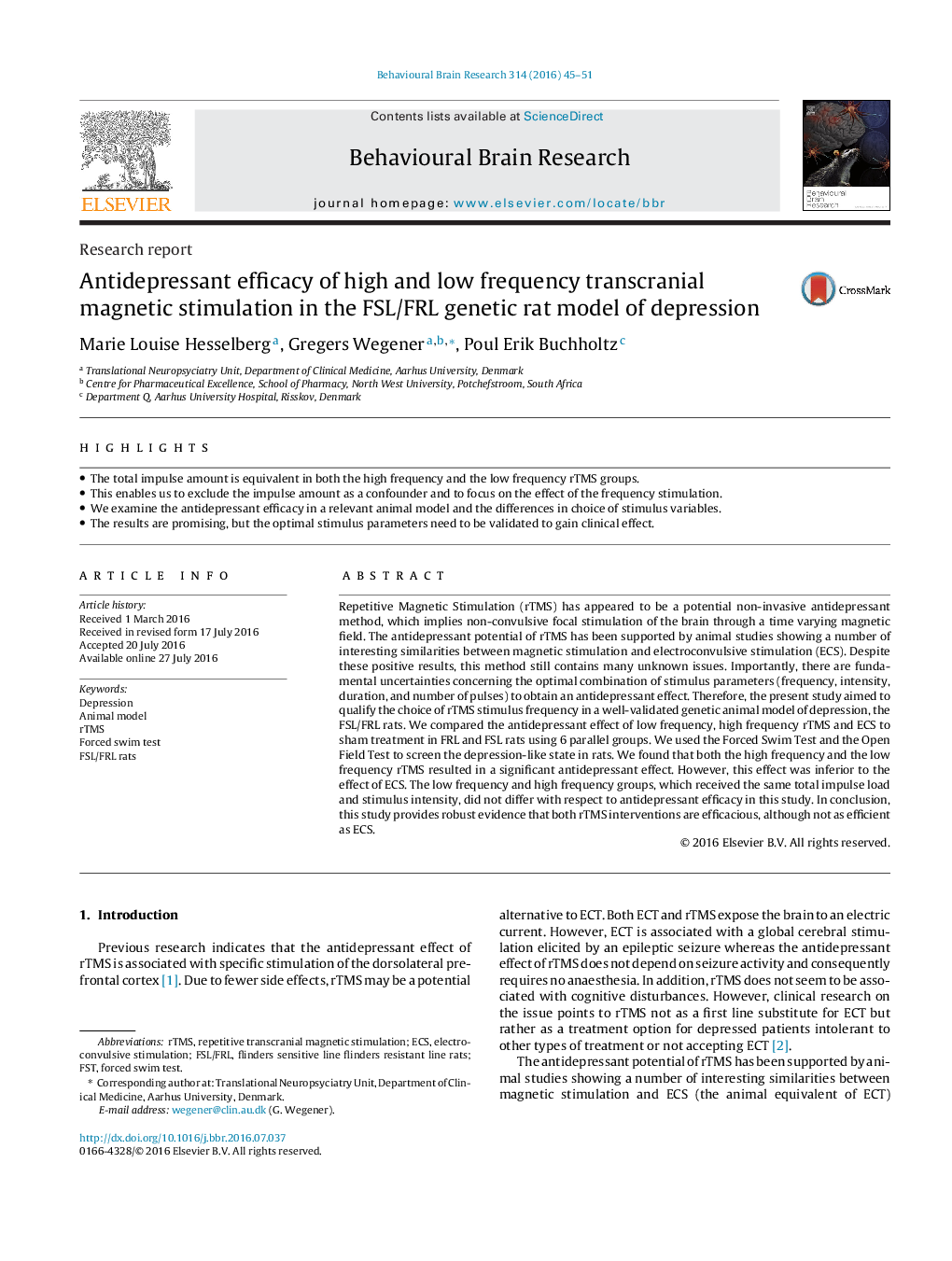| Article ID | Journal | Published Year | Pages | File Type |
|---|---|---|---|---|
| 4312101 | Behavioural Brain Research | 2016 | 7 Pages |
•The total impulse amount is equivalent in both the high frequency and the low frequency rTMS groups.•This enables us to exclude the impulse amount as a confounder and to focus on the effect of the frequency stimulation.•We examine the antidepressant efficacy in a relevant animal model and the differences in choice of stimulus variables.•The results are promising, but the optimal stimulus parameters need to be validated to gain clinical effect.
Repetitive Magnetic Stimulation (rTMS) has appeared to be a potential non-invasive antidepressant method, which implies non-convulsive focal stimulation of the brain through a time varying magnetic field. The antidepressant potential of rTMS has been supported by animal studies showing a number of interesting similarities between magnetic stimulation and electroconvulsive stimulation (ECS). Despite these positive results, this method still contains many unknown issues. Importantly, there are fundamental uncertainties concerning the optimal combination of stimulus parameters (frequency, intensity, duration, and number of pulses) to obtain an antidepressant effect. Therefore, the present study aimed to qualify the choice of rTMS stimulus frequency in a well-validated genetic animal model of depression, the FSL/FRL rats. We compared the antidepressant effect of low frequency, high frequency rTMS and ECS to sham treatment in FRL and FSL rats using 6 parallel groups. We used the Forced Swim Test and the Open Field Test to screen the depression-like state in rats. We found that both the high frequency and the low frequency rTMS resulted in a significant antidepressant effect. However, this effect was inferior to the effect of ECS. The low frequency and high frequency groups, which received the same total impulse load and stimulus intensity, did not differ with respect to antidepressant efficacy in this study. In conclusion, this study provides robust evidence that both rTMS interventions are efficacious, although not as efficient as ECS.
